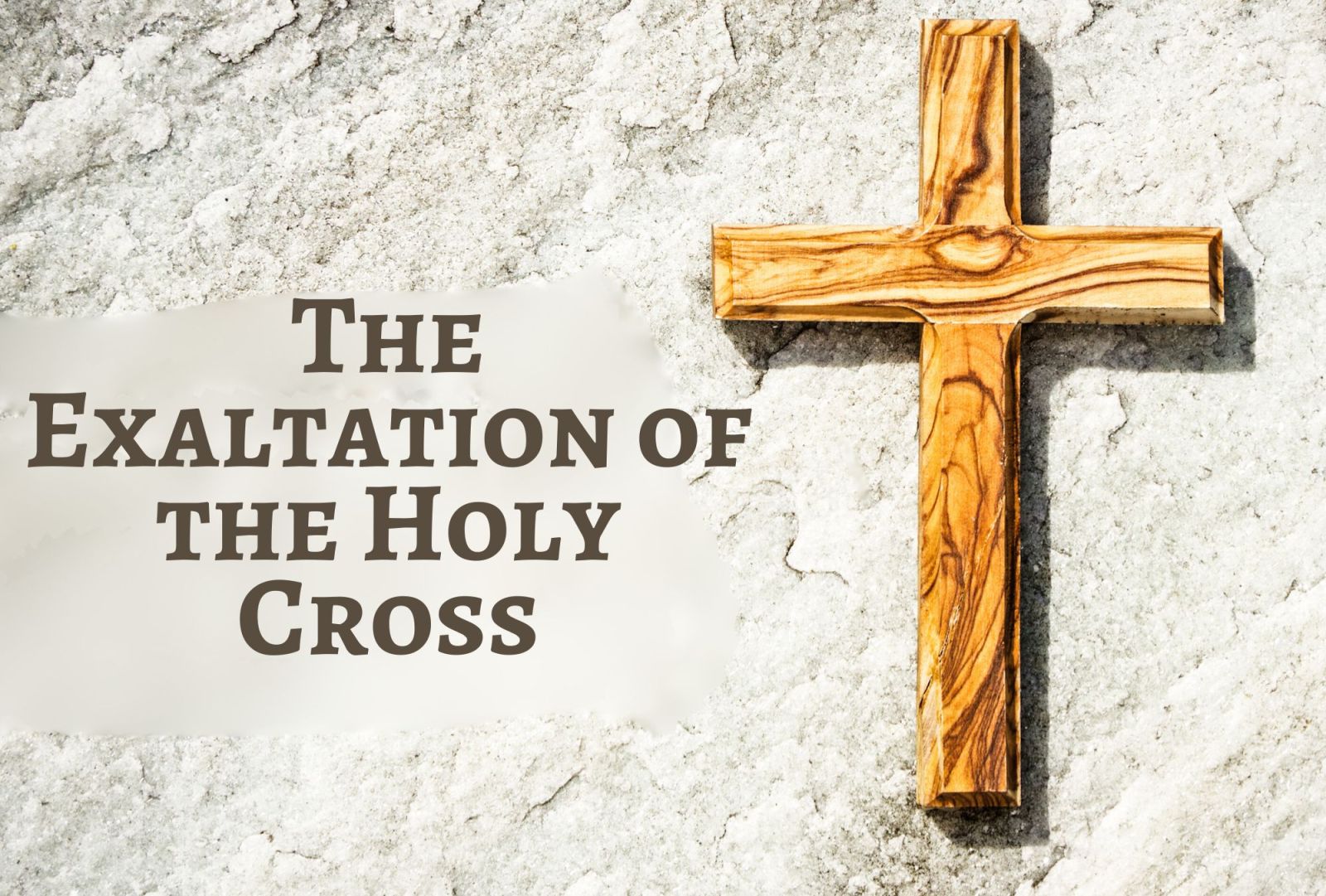 Reflection by Rian Prestwich - St Catherine’s Primary School Berwick
Reflection by Rian Prestwich - St Catherine’s Primary School BerwickFirst Reading Numbers 21:4-9,
Second Reading Philippians 2:6-11,
Gospel John 3:13-17
First Reading Numbers 21:4-9
To fully grasp the meaning of the first reading—and indeed all the readings for today—it is essential to first understand the significance of the Feast of the Exaltation of the Holy Cross. Only then can one begin to recognise the rich symbolism woven throughout the scriptures. During the Israelites' journey through the wilderness, God continually used their experiences to reveal more about Himself and to guide them in faith.
In a modern context, the first reading reflects humanity’s ongoing tendency to question God's plan. While most of us are not literally wandering through deserts today, we each encounter daily trials that challenge our faith and prompt us to ask, "Why me?" In the scripture, God sends venomous serpents as a consequence of the people's complaints and lack of trust, prompting them to acknowledge their sin and seek mercy through Moses.
The bronze serpent raised on a pole becomes a powerful symbol—not only of God's justice but of His mercy. For me, it evokes the image of the crucifix, which serves as a visual reminder to turn back to God. In our time, this serves as a call to confession, to seek forgiveness, and to trust in the healing and redemptive power of God.
Responsorial Psalm Psalms 77:1-2. 34-38. R. v.7
The Psalms are among my favourite passages in Scripture, offering timeless wisdom and spiritual insight. Today's responsorial psalm—“Do not forget the works of the Lord!”—is particularly resonant. It serves as a powerful reminder that God's presence and actions in our lives must never be taken for granted. Using parables to teach students in schools is an effective and meaningful way to help them attune their hearts and minds to the Word of God. Through storytelling, they are invited not only to listen, but to uncover deeper truths and encounter the living message of the Gospel.
Jesus, though rejected by many during his time, remains the cornerstone of our faith. His life and message challenge us to love God wholeheartedly—not merely in words, but through sincere action. Our faith is not fulfilled by simply attending Mass or hearing the Good News; we are called to embody it in every moment of our daily lives. Ultimately, today’s message is one of compassion and mercy. It reminds us of the immeasurable love shown through Christ’s sacrifice for the forgiveness of our sins. As followers of Christ, we are called to extend that same mercy to others, living out the Gospel through acts of love, forgiveness, and grace.
Second Reading Philippians 2:6-11
Jesus did not present Himself with the grandeur and authority of emperors like Augustus or Tiberius, who ruled from lofty thrones and surrounded themselves with power and prestige. Instead, Jesus chose humility—sharing meals with tax collectors, healing the sick, and walking among the poor and marginalised. In doing so, He emptied Himself, taking the form of a servant, not only to fully embrace our humanity but to reveal that God meets each of us exactly where we are. This radical humility is at the heart of Christ’s mission.
St. Paul, in his letter, reminds us of the fullness of this mystery: that Jesus, fully human and fully divine, humbled Himself even to death on a cross for the sake of our salvation. He then rose in glory, ascending to heaven, where He now reigns at the right hand of the Father. Jesus did not present himself in the same way Augustus or Tiberius did; Roman emperors sat on a large throne while Jesus ate with the tax collectors and visited the sick and the poor. Jesus emptied himself to assume the condition of a slave to not only become fully human, but to show everyone that God is with them just
as they are. St Paul’s letter reminds us that Jesus came as human, died on the cross for our sins, then ascended into heaven and is sitting at the right hand of the Father.
Gospel John 3:13-17
The Gospel of John and St. Paul’s letter share several profound thematic parallels. In today’s Gospel, John recalls the image of the serpent lifted up in the desert—a direct reference to the Book of Numbers—drawing a powerful connection to Christ being lifted up on the cross for the forgiveness of our sins.
This passage reminds us that God did not send His Son into the world to condemn it, but rather to reveal the path to holiness and offer salvation to all. Through Jesus, we witness the depth of God’s love and the invitation to eternal life. Together, John’s Gospel and St. Paul’s letter encapsulate the message of the preceding readings, uniting them into a clear and compelling reflection on the transformative impact of Christ’s sacrifice—not only for humanity, but for all of creation